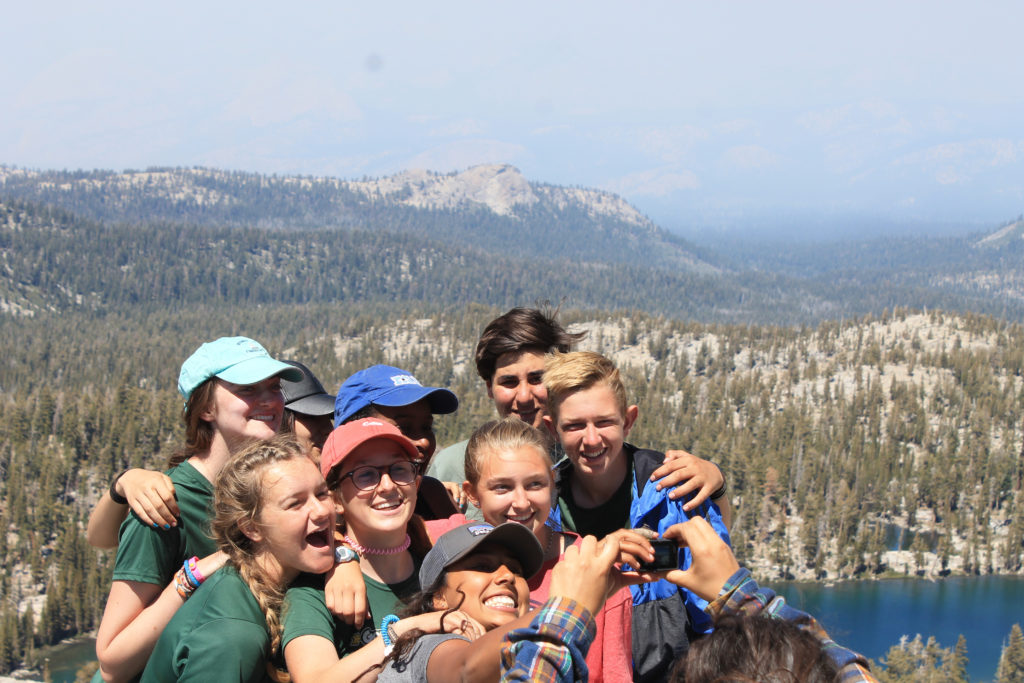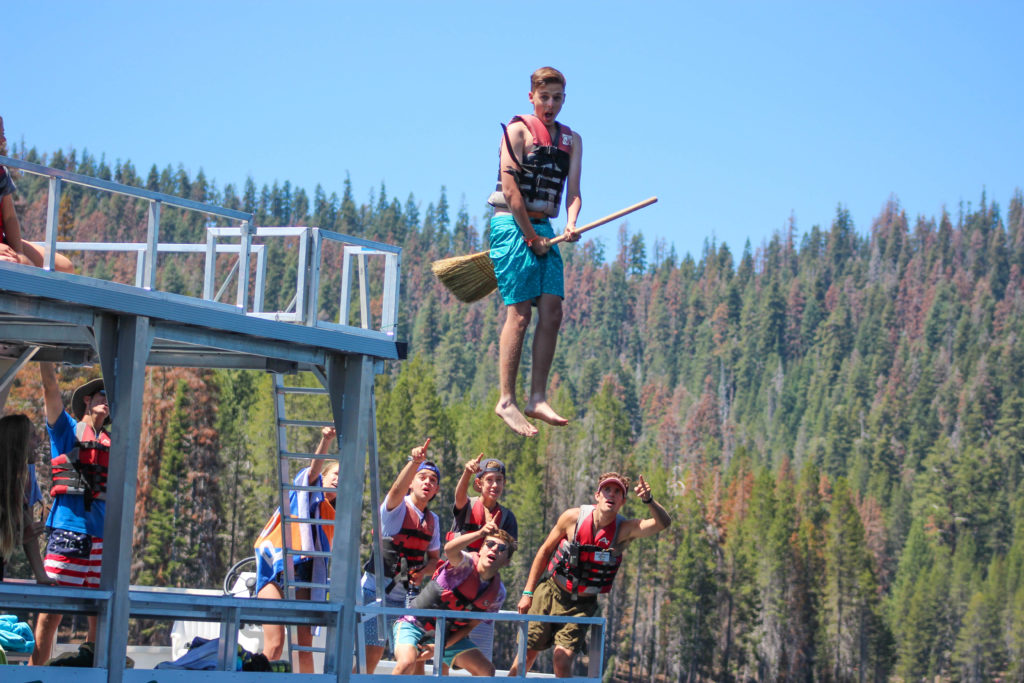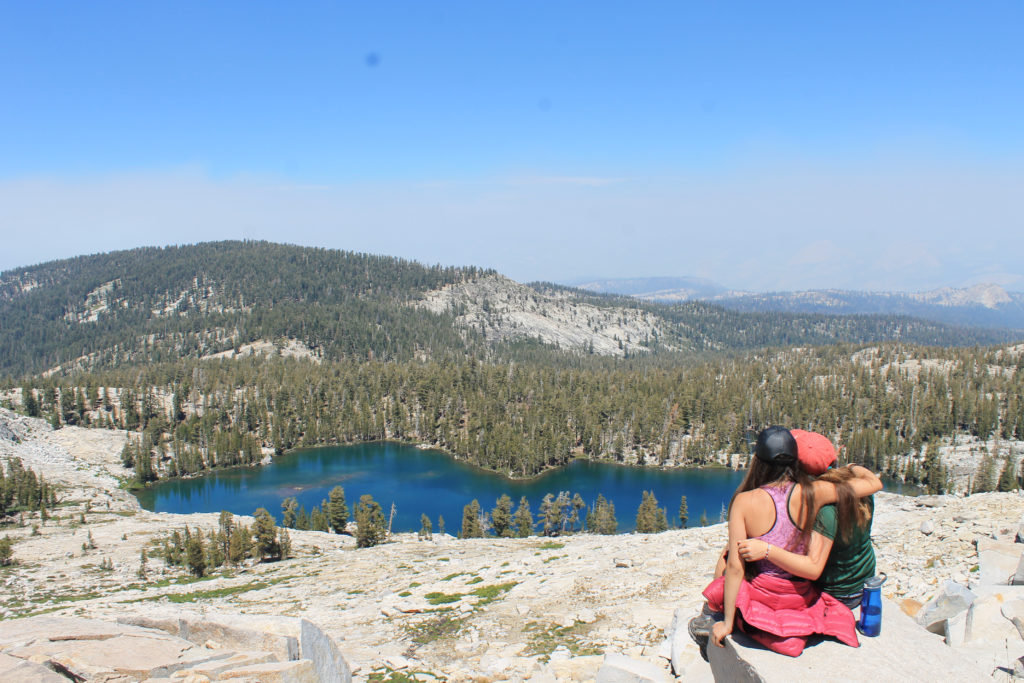Ep. 32: 10 Benefits of Summer Camp for Teens
It’s those deep relationships that are formed at summer camp that really have a dramatic influence on them.
-Stephen Gray Wallace
In Episode 32, I’m talking with Stephen Gray Wallace about his recent article for Teen Life : 10 Reasons Why High School Students Will Get a Lot from Summer Camp.
Adolescents’ Three Primary Developmental Tasks
- Forming an identity
- Gaining independence from parents
- Making friends

The Top 10 Outcomes of Experiential Learning at Camp
“Camp is an experience every child deserves,” according to the American Camp Association (ACA), which accredits more than 2,400 camps serving more than 7.2 million children and teens. Specifically, ACA points to the “joy” kids experience when they make new friends and the inherent value in unplugging from their electronic devices, enjoying being out of doors, connecting with other young people, and learning about themselves.
And the ACA adds that, from a quantifiable perspective, the outcomes of a summer camp experience include the following.
-
Friendship skills: Make friends and maintain relationships.
-
Independence : Rely less on adults and other people for solving problems and day-to-day activities.
-
Teamwork: Be more effective working in groups of peers.
-
Family citizenship: Gain attributes important to being a member of a family.
-
Perceived competence: Believe that they can be successful in the things they do.
-
Interest in exploration: Be more curious and eager to learn new things.
-
Responsibility: Learn to be accountable for their own actions and mistakes.
-
Affinity for nature: Develop feelings of emotional attraction toward nature.
-
Problem-solving confidence: Believe they have abilities to resolve problems.
-
Spiritual well-being: Develop purpose and meaning in life.
Camps are also being recognized as incubators for the highly valued non-cognitive or “soft skills” and as places to hone leadership and social entrepreneurship skills.

Quotes
Audrey: Is there an amount of time teens need to be at camp to get these benefits?
Stephen: I would argue the longer the better, but these types of outcomes transfer quickly, so even if they are only attending for a week or two, you’d see gains in those areas. Certainly, the longer they stay at camp, the deeper those benefits flow.
Audrey: What do you think are some of the mechanisms that help teens in all these areas?
Stephen: I think it’s the intrinsic nature of what we’ve been talking about. They’re away from home. They’re away from their normal support systems. They have to figure things out more on their own. They’re with a peer group for many hours during the day…They have to learn to problem solve their way out of their conflicts.
Audrey: How do camp experiences help prepare kids for the transition to college?
Stephen: I’ve been doing research in that area, and this week I published an article in Psychology Today called A User’s Guide to the First Year of College.
Audrey: What are ways you think parents can help kids learn how to own their own actions and admit mistakes?
Stephen: I offer camp directors the same advice that I offer to parents in my book, and that is to hold your teenagers to very high expectations, because they want to meet them – they want to meet your expectations. And then hold them accountable for those expectations.
Audrey: What is important for parents to ask about teen programs?
Stephen: Certainly, health and safety is most important. Ask specifically about how you keep the kids healthy and how you keep the kids safe. Also, ask about retention rates.
(Who Will Care When I’m Not There is a training video and curriculum many ACA accredited camp programs utilize to train staff on the importance of their role in keeping campers safe.)
About Stephen Gray Wallace
Stephen has broad experience as a school psychologist and adolescent/family counselor. He is president and director of the Center for Adolescent Research and Education (CARE), a former associate research professor at Susquehanna University, and the past national chairman and chief executive officer at SADD (Students Against Destructive Decisions/Students Against Driving Drunk). Stephen also works with the American Camp Association (ACA) as a feature magazine writer, media spokesperson and faculty member at its e-Institute for Professional Development.
In addition, Stephen is a resident camp director and the director of counseling and counselor training at Cape Cod Sea Camps. Stephen was also appointed to the professional development faculty of the American Academy of Family Physicians (AAFP) and serves as a parenting expert for kidsinthehouse.com. He previously served as an adjunct professor at Mount Ida College in Newton, Massachusetts. Most important, Stephen is a high-profile participant in, and commentator on, the modern-day adolescent experience.

Resources/Related
Ep. 27: Raising Teens who Thrive with Stephen Wallace
Stephen is the a
Why Teens Need Summer Camp More Than Ever
Ep. 16: Born to Be Wild with Dr. Jess Shatkin
Too Much Screen Time? 4 Ways Summer Camp Can Help
Book Audrey mentioned: How to Win Friends and Influence People in the Digital Age

